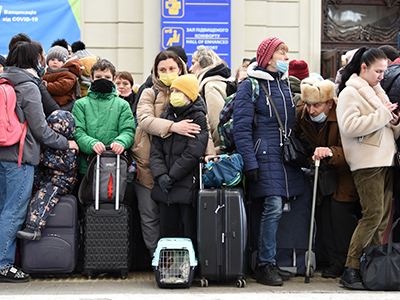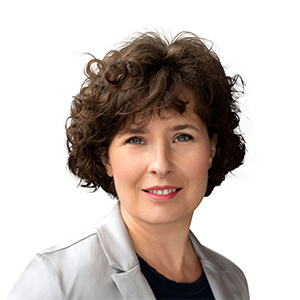Ukrainian Refugees and the Challenges of Reception and Integration in Germany and Europe
Friday, April 29, 2022
12:00 p.m. ET (US)
Zoom Webinar
About the Event
 The escalation of the armed conflict in Ukraine has led to the destruction of civilian infrastructure and civilian casualties, forcing people to leave their homes and land in search of safety, protection and assistance. So far (as of April 6th, according to UNHCR), nearly 2.5 million Ukrainians have found protection in Poland. Over 660.000 have fled to Romania, another 400,000 to Moldova, 404,000 to Hungary, 304,000 to Slovakia. Around 306,000 people have arrived in Germany. Even if it is not clear how the situation in Ukraine will develop, whether the number of people who seek protection abroad will decrease, and when and whether the Ukrainians will be able to return to their homeland, these figures already show that the adequate support and, if necessary, longer-term integration of these refugees are European tasks. In my talk, I try to give an overview of the current and future challenges that Germany as well as other European countries face in respect to reception and integration of the Ukrainian refugees. Thereby, I point to differences and similarities between the current and the 2015/2016 situation.
The escalation of the armed conflict in Ukraine has led to the destruction of civilian infrastructure and civilian casualties, forcing people to leave their homes and land in search of safety, protection and assistance. So far (as of April 6th, according to UNHCR), nearly 2.5 million Ukrainians have found protection in Poland. Over 660.000 have fled to Romania, another 400,000 to Moldova, 404,000 to Hungary, 304,000 to Slovakia. Around 306,000 people have arrived in Germany. Even if it is not clear how the situation in Ukraine will develop, whether the number of people who seek protection abroad will decrease, and when and whether the Ukrainians will be able to return to their homeland, these figures already show that the adequate support and, if necessary, longer-term integration of these refugees are European tasks. In my talk, I try to give an overview of the current and future challenges that Germany as well as other European countries face in respect to reception and integration of the Ukrainian refugees. Thereby, I point to differences and similarities between the current and the 2015/2016 situation.
About the Speaker
 Magdalena Nowicka is Head of Department Integration at DeZIM, German Center for Integration and Migration Research and Professor for Migration and Transnationalism at the Humboldt University in Berlin. She holds a doctoral degree in Sociology from the Ludwig Maximilian University in Munich (2005), a Master of Arts degree in Cultural Studies from the Jagiellonian University in Krakow, Poland (2001) and a Bachelor of Arts degree in International Relations from the University of Warsaw, Poland (1999). She worked previously at the Institute of Sociology at the Ludwig Maximilian University in Munich (2006-2013) and Max-Planck Institute for the Study of Religious and Ethnic Diversity in Göttingen (2010-2013). She has published on conviviality, cosmopolitanism, diversity, racism, intersectionality, and Polish migrants in the UK and Germany.
Magdalena Nowicka is Head of Department Integration at DeZIM, German Center for Integration and Migration Research and Professor for Migration and Transnationalism at the Humboldt University in Berlin. She holds a doctoral degree in Sociology from the Ludwig Maximilian University in Munich (2005), a Master of Arts degree in Cultural Studies from the Jagiellonian University in Krakow, Poland (2001) and a Bachelor of Arts degree in International Relations from the University of Warsaw, Poland (1999). She worked previously at the Institute of Sociology at the Ludwig Maximilian University in Munich (2006-2013) and Max-Planck Institute for the Study of Religious and Ethnic Diversity in Göttingen (2010-2013). She has published on conviviality, cosmopolitanism, diversity, racism, intersectionality, and Polish migrants in the UK and Germany.